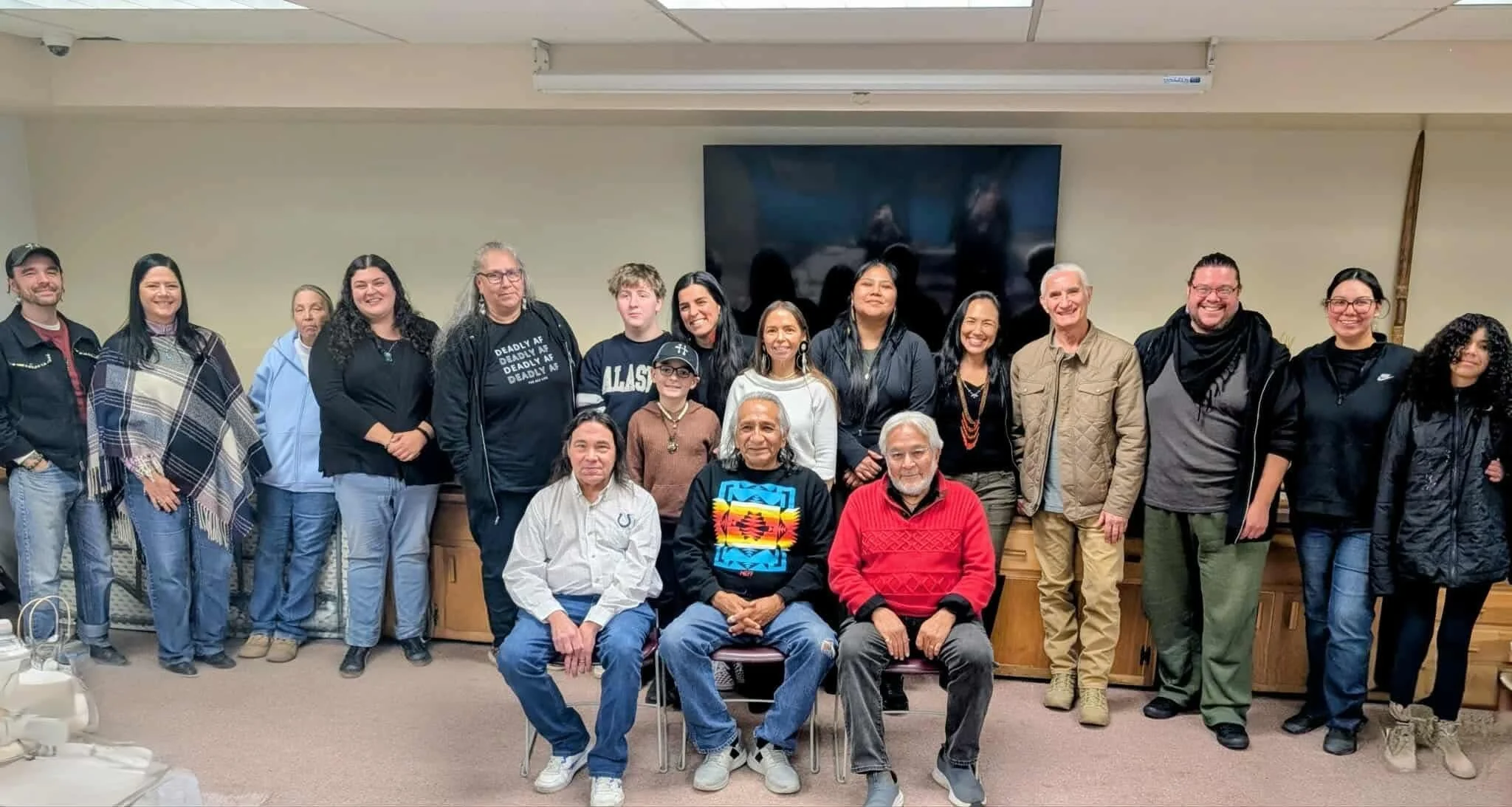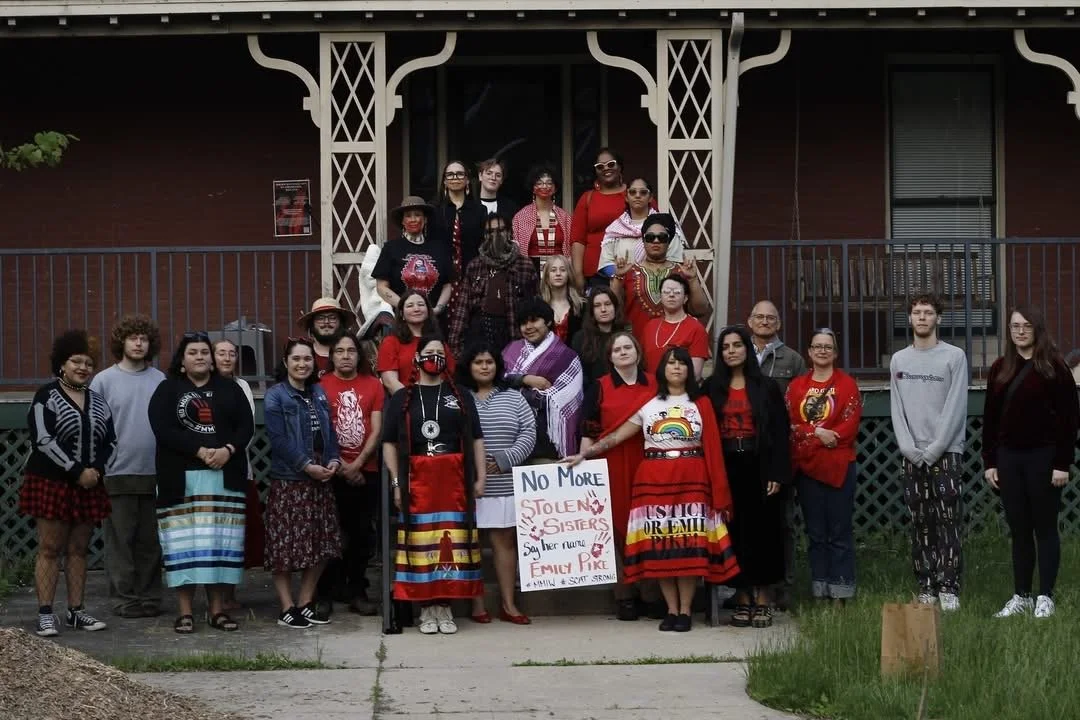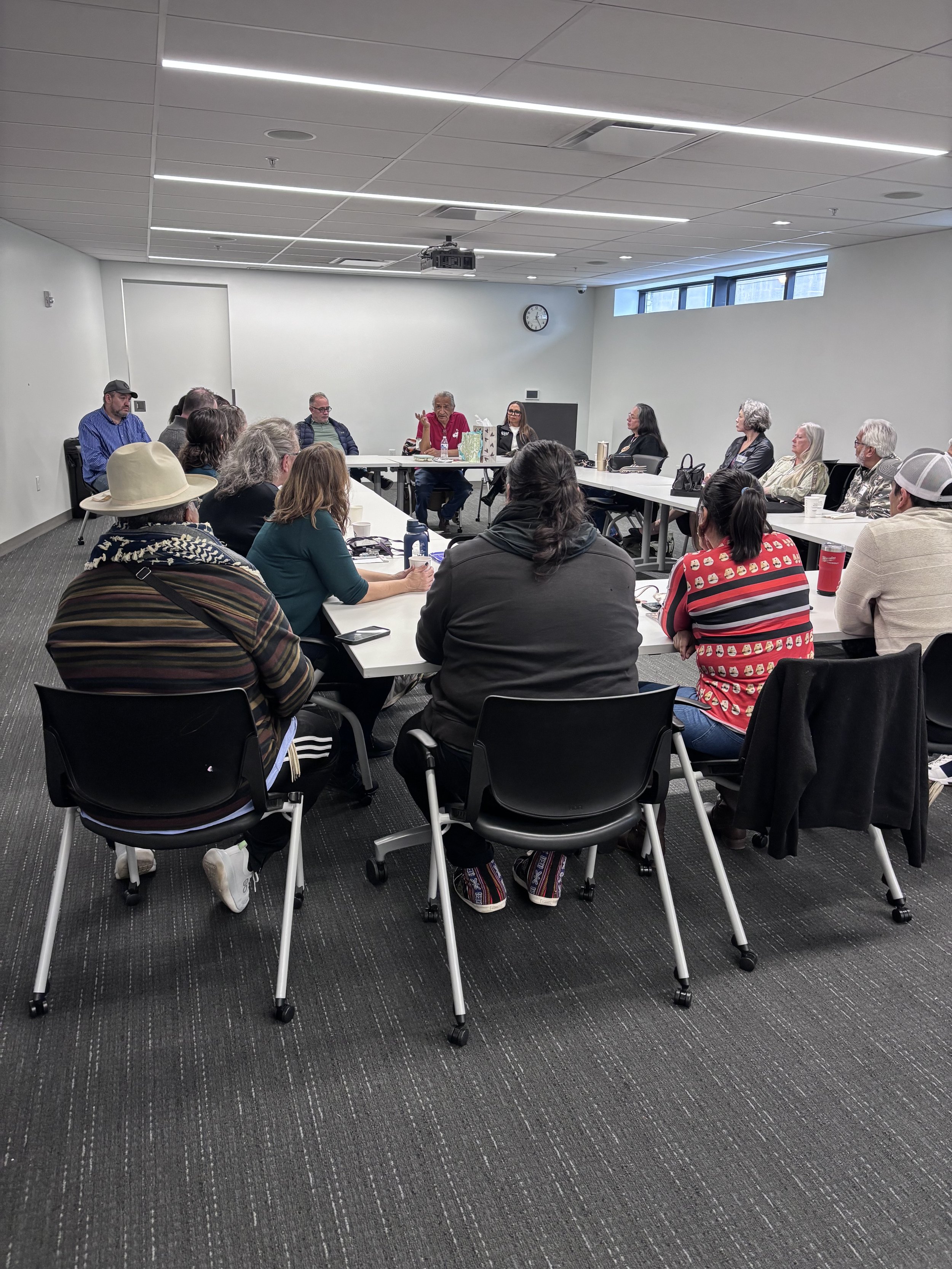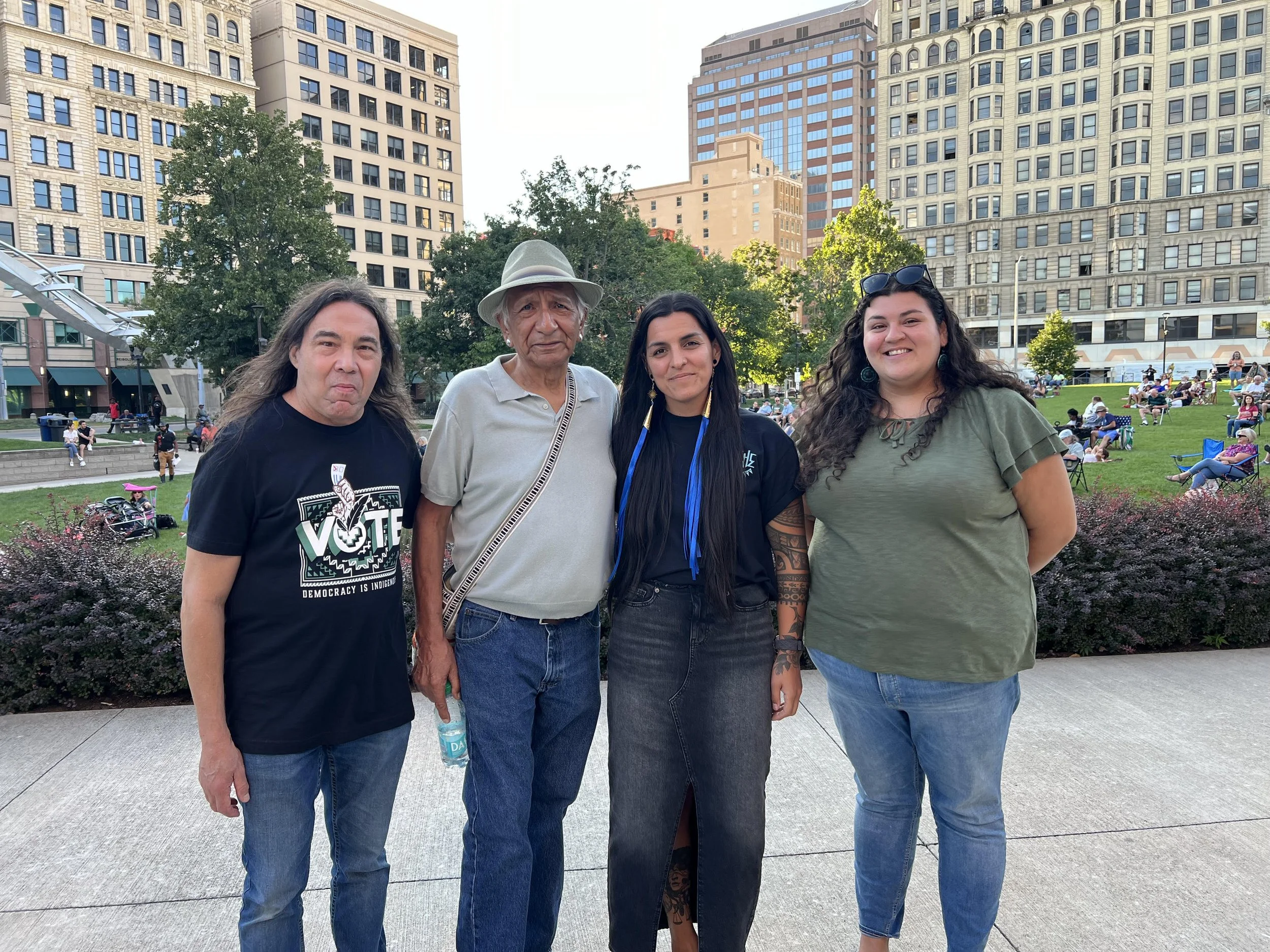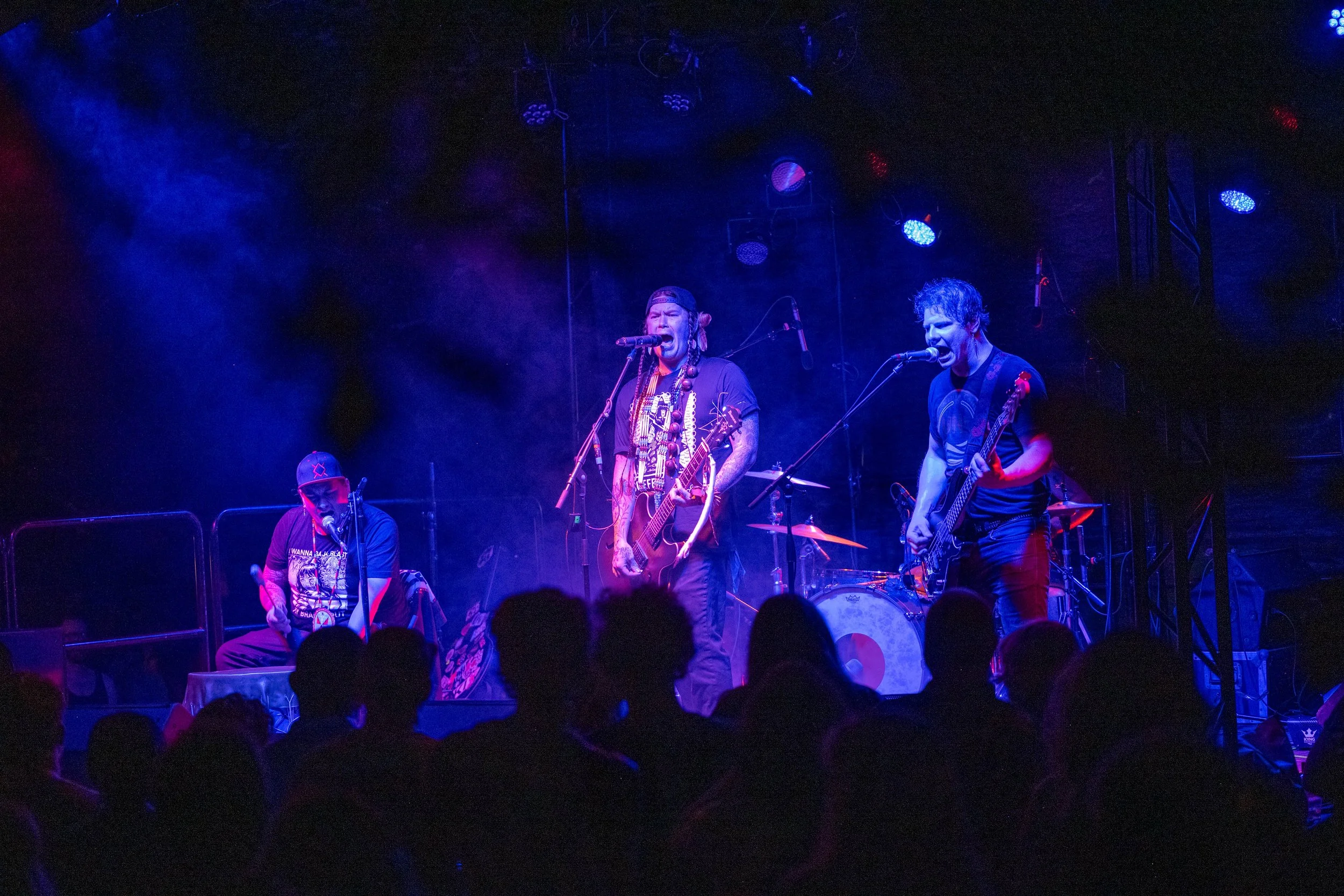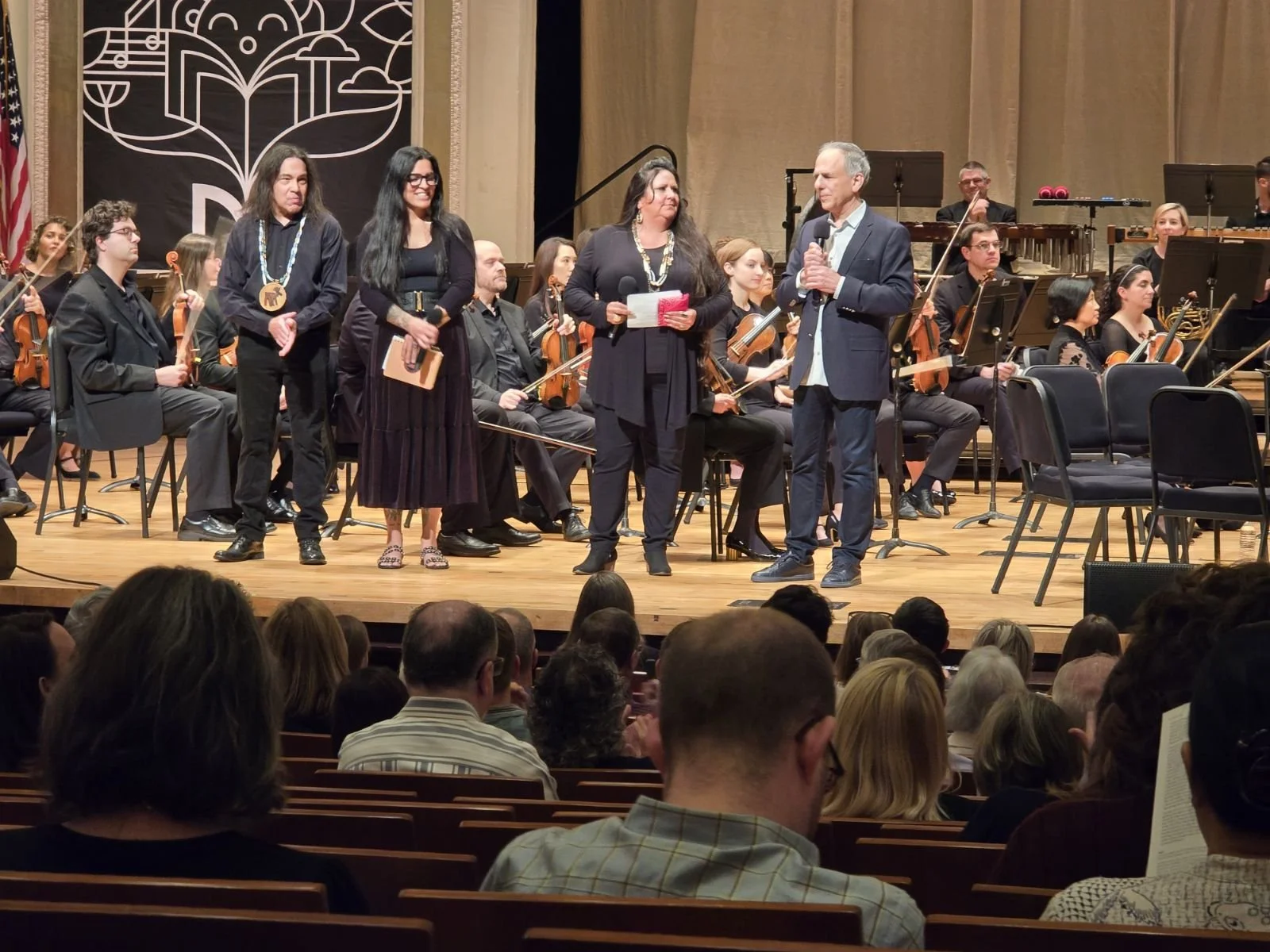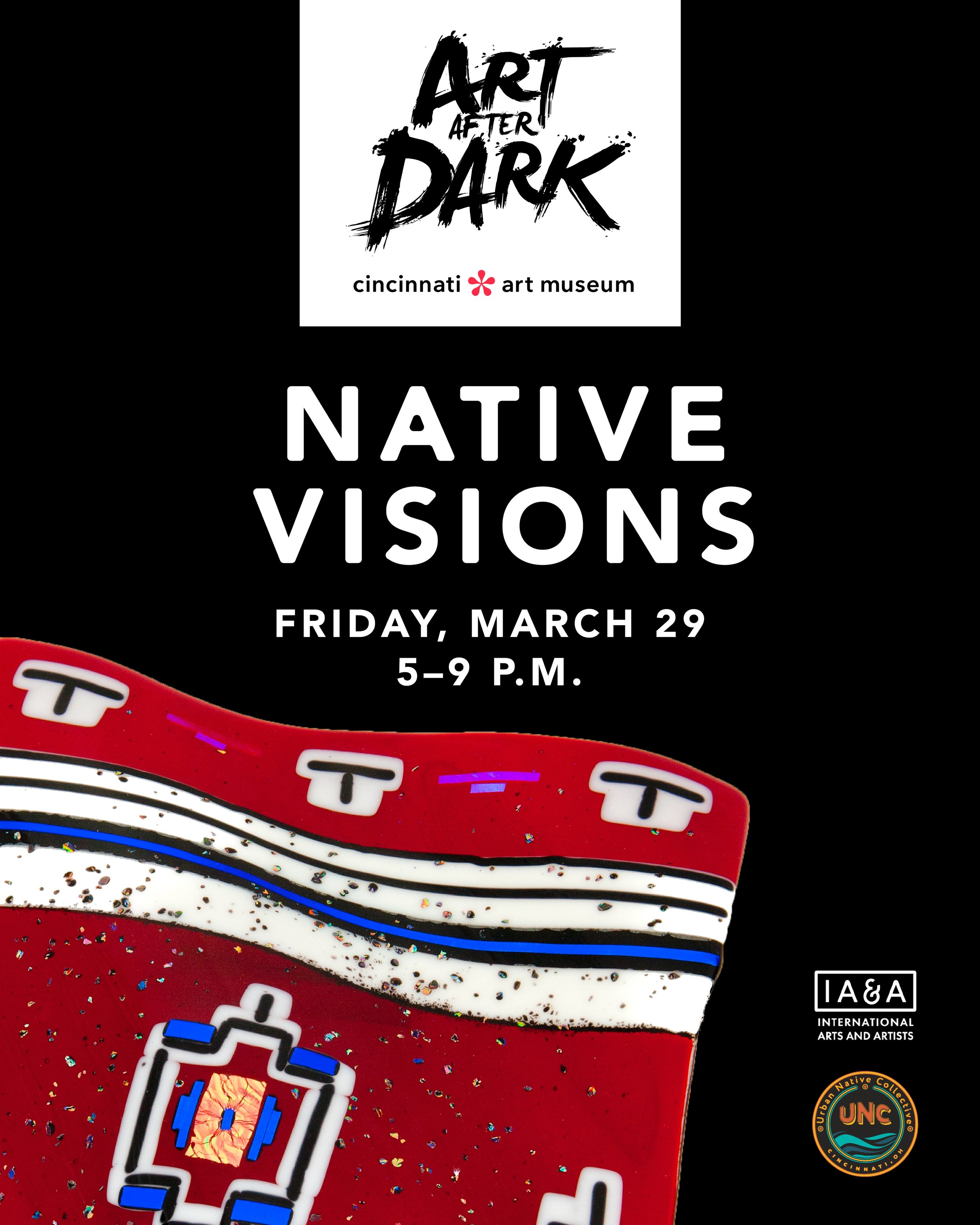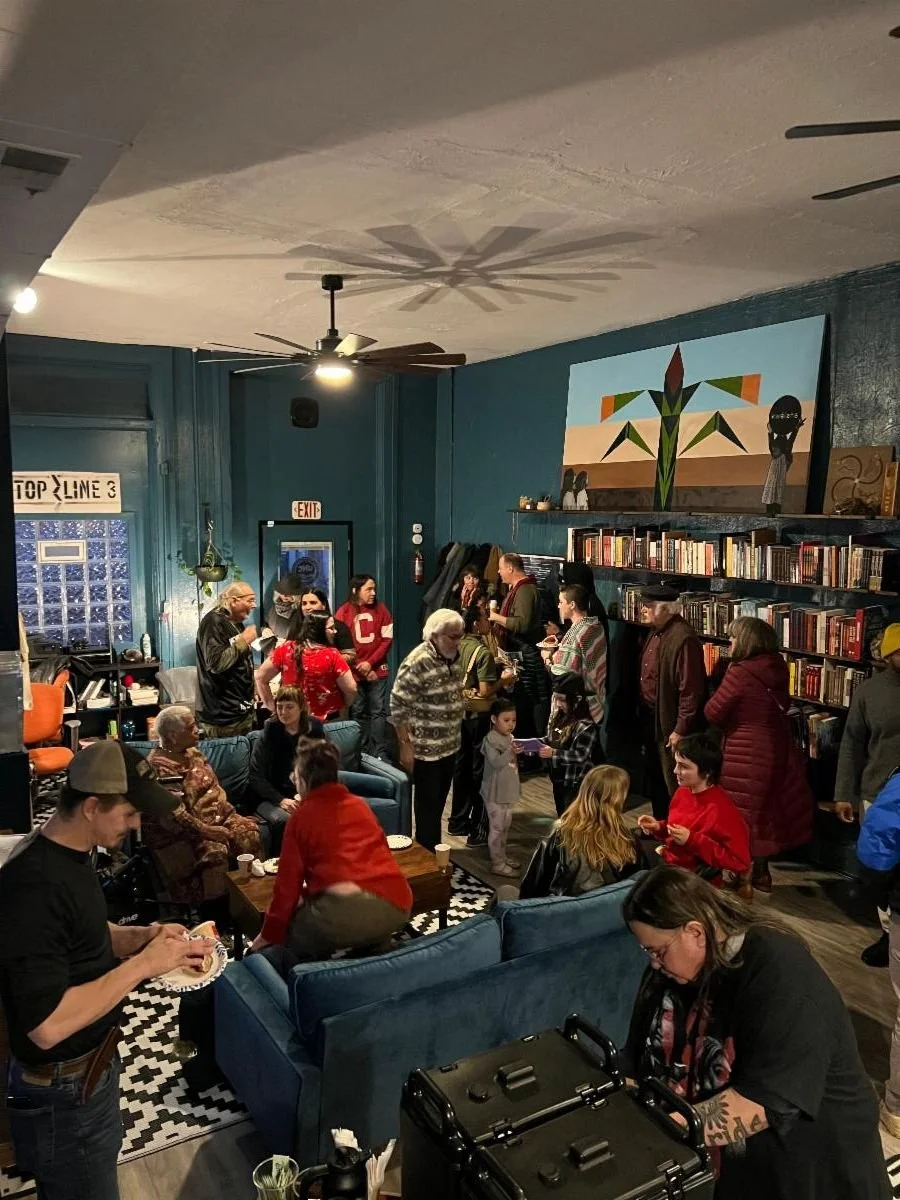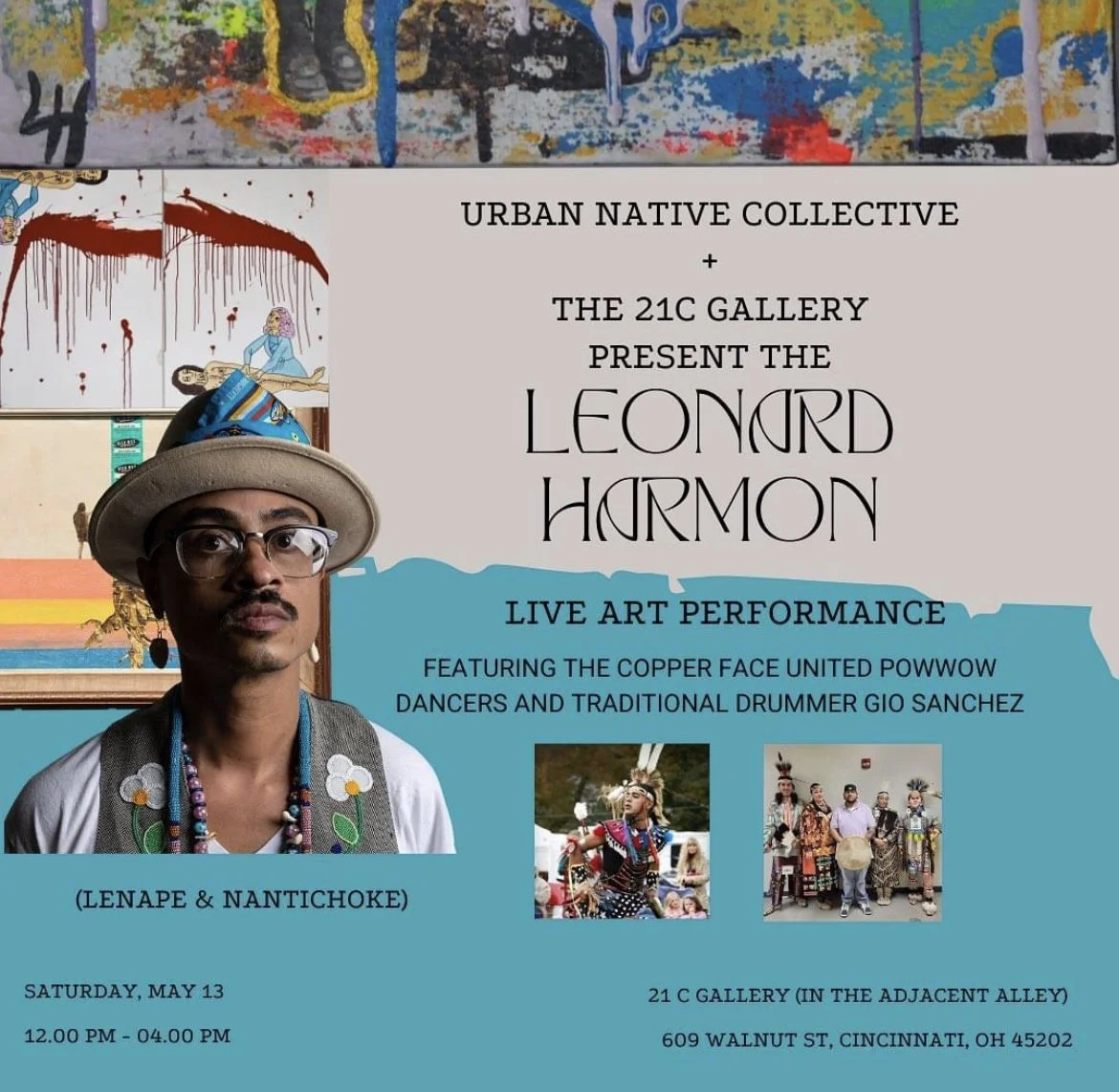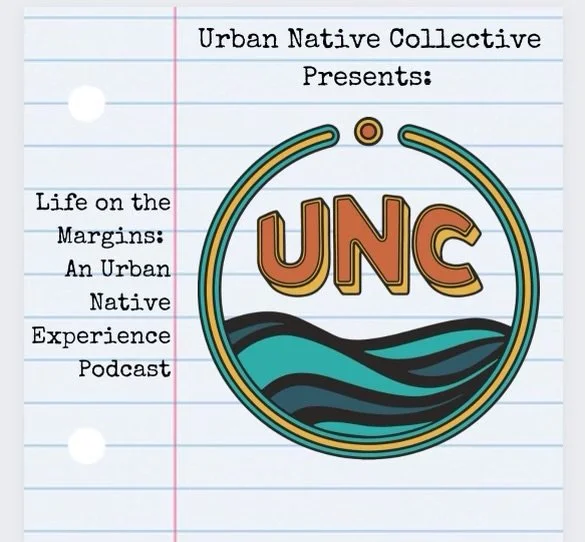Events & Programs (and some news) at Urban Native Collective
Welcome, Relatives!
At Urban Native Collective, our events and programming are all about celebrating Indigenous joy, strengthening our bonds, and diving into meaningful dialogues and actions. Here you will see commitment to education, advocacy, and support for both our local and global Indigenous communities. From cultural celebrations to educational workshops, advocacy meetings, fitness and wellness, and everything in between, there’s always something going on at Urban Native Collective. Here’s a calendar to see what’s up:
Stay Updated
Don’t miss out on any of our events! Check back often as we update our calendar with new and exciting opportunities to connect and grow. Whether you’re looking to learn, share, or simply celebrate, there’s a place for you here.
Join the Conversation
Got an idea for an event or want to get involved? We’re always looking to expand our offerings and include more voices in our programming. Drop us a line, or better yet, stop by and let’s chat about how you can be part of the community.
Programs
Get to know some of our important programs! Check back frequently for more updates.
"Life on the Margins Podcast" is a dynamic platform where voices of the Urban Native community are amplified. Each episode explores the unique experiences of Indigenous peoples living in urban settings, blending personal stories with discussions on contemporary issues. Tune in to hear inspiring tales of resilience, cultural insights, and perspectives on navigating the complexities of modern life while staying connected to Indigenous roots.
The "Urban Garden Project" is a flourishing initiative that reconnects our community with the land. Through urban agriculture, we honor traditional Indigenous farming practices while promoting sustainability and food sovereignty. This project not only nurtures plants but also fosters a sense of communal well-being and environmental stewardship among Urban Natives.
The “Climbing and Fitness Program” promotes physical health, cultural connection, and leadership empowerment within the Indigenous community. By combining the physical challenges of climbing with tailored fitness activities, this program offers a unique opportunity for Indigenous individuals to improve their overall well-being.
The “Healing & Counseling” offers comprehensive mental health support to Indigenous Women, Women of color, Two-Spirit, and Non-binary relatives. complimentary access to 12 mental health sessions over a one year period, ensuring consistent support for emotional and psychological healing. There is no cost for participating in this program.
The "Indigenous Peoples’ Day Convergence" is a celebration of Indigenous cultures, histories, and contributions. This event is a vibrant gathering that features cultural performances, educational workshops, and community dialogues. It's a day to rejoice in Indigenous pride, resilience, and unity, challenging the narratives of Columbus Day and promoting Indigenous visibility.
Past News and Events
Our past events, detailed in the newsfeed below, showcase our active engagement in various initiatives. From cultural festivals to advocacy campaigns, these events reflect our ongoing efforts to bring Indigenous issues to the forefront, create spaces for learning and celebration, and strengthen our community ties. Through these diverse programs, the Urban Native Collective continues to be a beacon of Indigenous joy, empowerment, and education in Ohio and beyond.
The "Indigenous Peoples' Day Convergence" is a celebration of Indigenous cultures, histories, and contributions. This event is a vibrant gathering that features speakers, artists, dancers, and a feast!
On May 13, Urban Native Collective, in collaboration with 21c Museum Hotel, hosted Native Indigenous artist Leonard Harmon, presenting a "Live Painting," along side Pow Wow Dancers in Gano Alley, adjacent to 21C Museum Hotel.
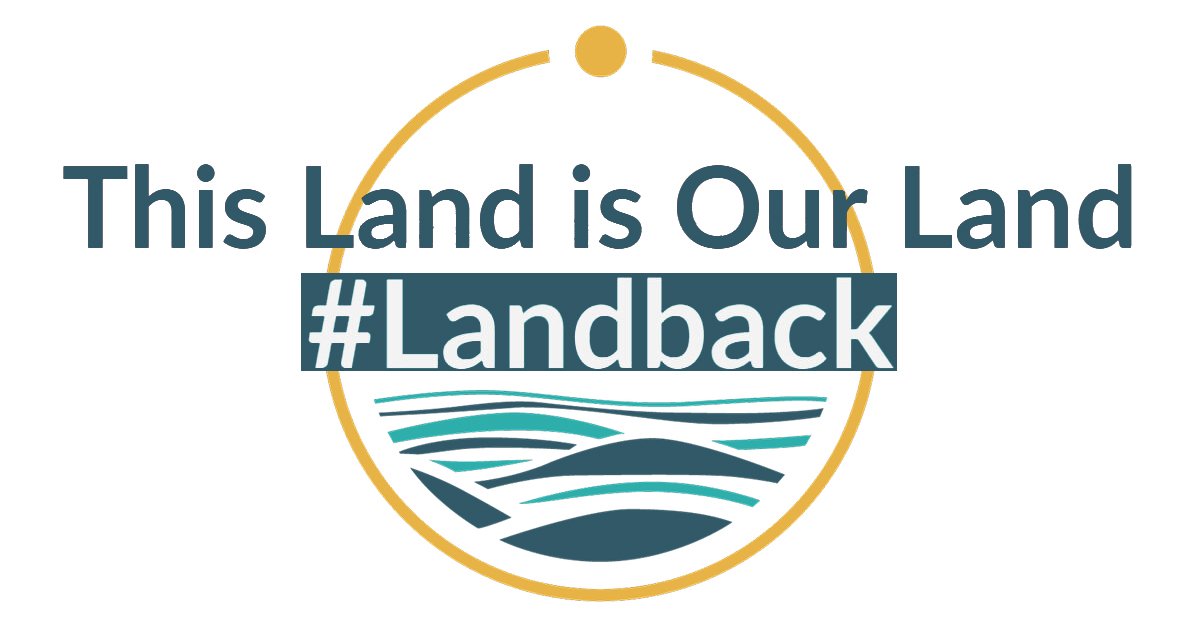
Solidarity action with the movement to stop line 3 & the Dakota Access Pipeline. The action will “tour” through the bank’s financing Enbridge, including Bank of America & Chase. The march will close at the Federal Building where the Army Corp of Engineers offie is located. Cincinnati joins dozens of cities across the US taking action to Stop Line 3 through March and April. There will be short stops at each location where speakers & activities will occur. The event will have visual art work. Water Protectors can expect to hold artwork & sign cards.
When: Friday April 2 at 11:30 AM
Where: Downtown Cincinnati, Corner of 3rd & Walnut
THROUGH ITS NEW OHIO NATIVE LAND INITIATIVE, UNC seeks to establish a broader platform to promote Indigenous perspectives on sacred sites, encourage land rematriation efforts, and assert Native sovereignty as foundational to some of the region’s most important natural resources and public spaces.
The Ohio Native Land Initiative is an effort intended to (1) promote greater involvement with and protection for sacred Indigenous sites in Ohio; (2) broaden alliance-building efforts leading to deeper engagement with movements that support the protection of Indigenous sovereignty and cultural rights; (3) encourage serious efforts toward the re-indigenizing of public and private spaces in order to create opportunities that honor Indigenous lifeways and promote spiritual freedom; and (4) broadening education and public outreach around Indigenous culture, lifeways, and Native habitats. The overarching purpose of the initiative is to protect Indigenous lands, sacred sites and natural resources, while advancing awareness of the critical connection between Native sovereignty and environmental preservation.
Podcasts You Should Be Listening To
The Indigenous Field Guide (IFG) is a centralized guide for individuals and organizations. IFG provides public education to prevent the damage of nonrenewable cultural resources, address access concerns for public and private lands, and create an online platform to amplify and integrate Indigenous worries regarding cultural land resources. The IFG will connect individuals and organizations with Indigenous guides, underrepresented communities, and advisors who are able to help ethically navigate outdoor spaces.
Hosted by Briana Mazzolini-Blanchard and Homer Shadowheart, Life on the Margins is a podcast centering the Indigenous perspective. We discuss the issues of marginalization that minority communities face in their everyday lives, all through an Indigenous lens.
Hosted By Grace and Qua
A podcast from two Ojibwe chicks trying to live their best life in the city
Hosted By Pam Palmater
This is an Indigenous podcast about the warrior life - featuring the voices of Indigenous warriors, advocates & leaders on the front lines of Indigenous resistance, resurgence and revitalization, who are protecting our lands, peoples and sovereignty.
Hosted By Andy Murphy
After contact, Indigenous foodways and knowledge were devastated, nearly destroyed and replaced with foods that are far from the people. So today, I’m talking to Native chefs and foodies about what Indigenous cuisine is, where it comes from, where it’s headed and how it’s used to connect them and their communities to their origins and traditions.
This podcast is hosted by me, Andi Murphy. I started the Toasted Sister Podcast in January 2017 and talked with dozens of Indigenous people across the country about food. This is an award-winning podcast. It got first place for general excellence (in the professional division II) in radio and podcasting at the Native American Journalists Association 2019 National Native Media awards.



